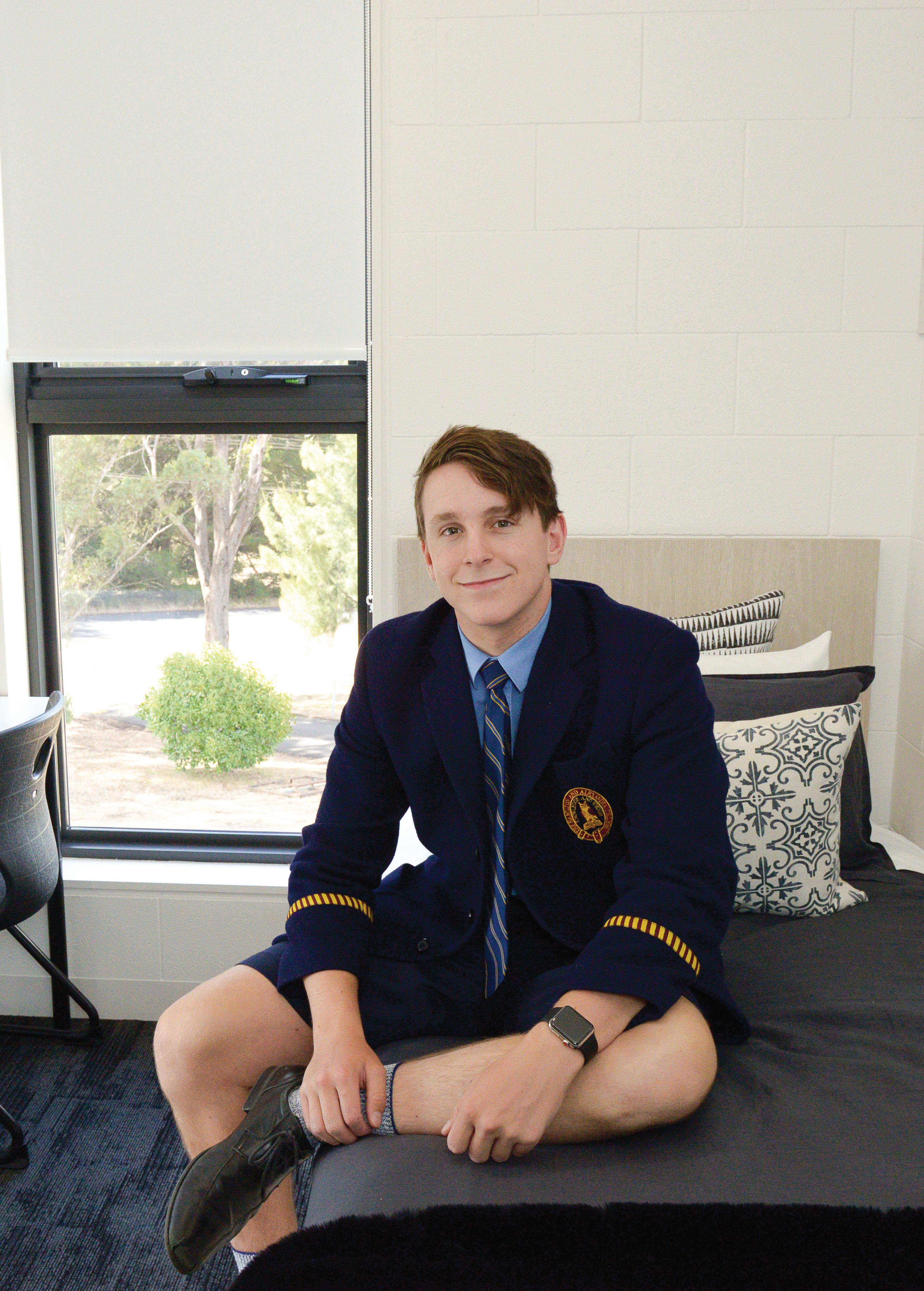
A secure future THE IVY & THE TOWER A PUBLICATION OF THE HAMILTON AND ALEXANDRA COLLEGE NO 72 JUNE 2019 08 NEW BOARDING WING FOR YEAR 12S 14 OPENING UP NEW WORLDS

WELCOME FROM THE 2019
Isabella Bradbeer and James Sutherland
A SECURE FUTURE
Welcome to the first edition of The Ivy and the Tower for 2019. We wish to introduce this edition by explaining how we see and embrace the theme, A Secure Future, and how we see it apply to all students at The Hamilton and Alexandra College.
Our Year 12 cohort decided on ‘Overcome To Become’ as our final year motto, which strongly resonates with our passion to succeed by overcoming life’s obstacles.
SCHOOL CAPTAINS
We believe this relates to all students needing to get through the tough moments throughout their schooling. The incredible support that students are given at College, whether academically, in sport, in the arts or emotionally, is immense.
As students, we have come to realise that before you can achieve, you must first have a strong and positive mindset. At College we are not only provided with a wonderful education, but we are also given
02
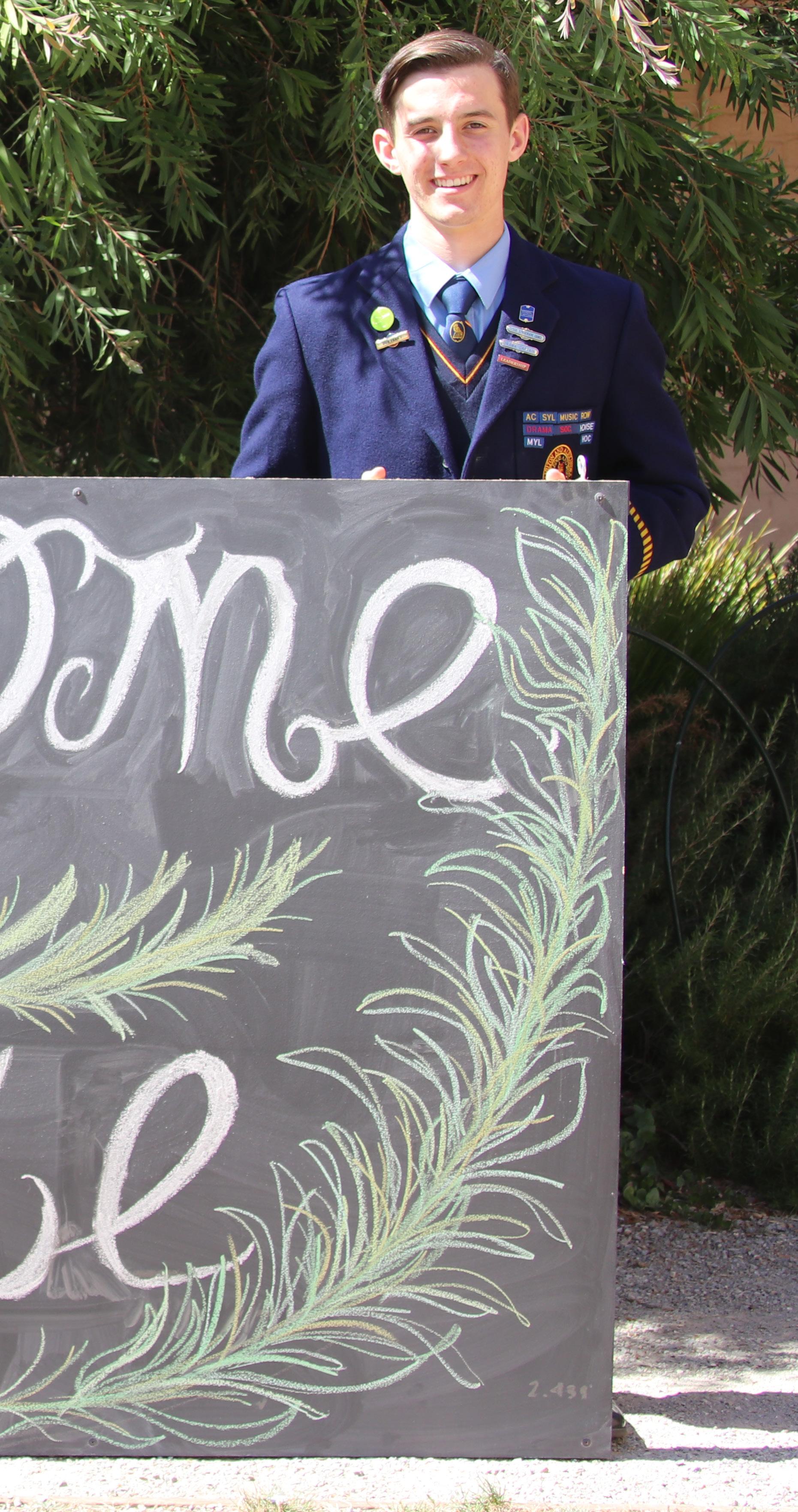
ALSO IN THIS ISSUE
CONGRATULATIONS TO THE CLASS OF 2018... see page 6
EMBRACING THE REGGIO EMILIA PHILOSOPHY FROM ELC TO YEAR 3...
see page 10
WHY READING MUST BECOME HABIT... see page 12
THE COLLEGE COMMUNITY OUT AND ABOUT... see page 17
the support to develop a confident outlook to help us succeed in our futures.
With lots of discussion around future careers and life after Year 12, it is safe to say that the majority of our cohort will be feeling secure about where they are heading after school and beyond.
So sit back, relax, and enjoy this edition of The Ivy and the Tower.
KANTOR MPAC
A stunning facility… a memorable experience
Available for community use… go to www.hamiltoncollege.vic.edu.au and click on the logo at the bottom of our homepage.
FIND US ON FACEBOOK
We now have over 2,248 followers. ‘Like’ us and follow the fun of daily life at the College as well as stories about Collegians past and present.
FOLLOW US ON INSTAGRAM
Hamiltoncollege_au
FOLLOW OUR GLOBAL EXPERIENCES BLOG
www.hamiltoncollege.blog
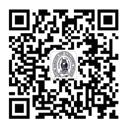
CONNECT WITH US ON WECHAT
Hamiltoncollege_au
Cover photo: Boarder Jackson Hodgetts in one of the new Year 12 rooms Photography: Alana Brown, Liz Crothers, Ashlyn Hiscock and Frances O’Brien
THE IVY & THE TOWER 03
FROM THE PRINCIPAL
Dr Andrew Hirst
A SECURE FUTURE
I write this from Beijing Capital International Airport as I start to head home after travelling through China with our Year 9 students for the past eight days.
A secure future means different things to different people – for example it means something different for a Chinese person than for an Australian – and yet, in such complex times, it is something we all desire.
So what constitutes a secure future for a regional, independent co-educational day and boarding school in the 21st Century?
Strong enrolments, excellent facilities, outstanding results, a myriad of co-curricular pursuits. All are fundamental, but at the heart is a shared confidence in our culture. One that identifies the significance of our landscape and draws on not only our heritage, but also a focus to ‘seek the best for and from every student’ for their future.
It is for this very reason that the Board identified ‘a secure future’ as one of five strategic priorities. Together with ‘a vibrant learning culture’, ‘positive and caring relationships’, ‘a connected community’ and ‘an excellent team of staff’, these priorities will guide our work, consolidate our foundations and ensure a better future for all at The Hamilton and Alexandra College.
Our firm priority remains to be the school of choice for parents seeking academic success for their child. We acknowledge the traditional importance of high academic expectations for all students, and increasingly we also need to provide boys and girls with ‘connectedness in life’, drawing on the recent research of Michael Fullan who is acknowledged as a worldwide leader on educational reform.
This year our Teaching and Learning Executive Team has been tasked with constructing a new educational framework that builds a learning community where we all support each other and which fuels a drive for continuous improvement. Critical to this is a commitment to personalised learning. This means high quality teaching that is responsive to the different ways students achieve their best.
We know we must give our students opportunities to learn using a range of media and methods, and applying all of their senses. Our boys and girls need to learn how to read from a book, write and draw with their hands, move their bodies in different ways, understand social cues and interact with nature. At College, we value a holistic education that nurtures the body, mind and soul.
A great school cares about its students, its staff, its parents and each other. At The Hamilton and Alexandra College, our purpose is to provide a caring and vibrant learning environment that engages all our students, underpinned by our school values of respect, compassion, gratitude, resilience and optimism.
As we fast approach our sesquicentenary celebrations in 2022, we are proud of the long tradition and all that College and our students have achieved. At the same time, we continually strive to better understand and care for our students while guiding them to work towards their individual future ambitions. Creating confident futures demands that we develop a deep understanding of our students’ strengths and it is imperative that, as teachers, we become researchers of our own practice.
I encourage you to explore this edition of The Ivy and the Tower and discover the different ways that staff and students alike are ‘securing confident futures’ by opening new worlds and new possibilities.

04
Elsie Adams (Year 7), Victoria Dunstan (Year 8) and Rafael Gaio (Year 8) with Dr Hirst.

“OUR FIRM PRIORITY REMAINS TO BE THE SCHOOL OF CHOICE FOR PARENTS SEEKING ACADEMIC SUCCESS FOR THEIR CHILD. WE ACKNOWLEDGE THE TRADITIONAL IMPORTANCE OF HIGH ACADEMIC EXPECTATIONS FOR ALL STUDENTS, AND INCREASINGLY WE ALSO NEED TO PROVIDE BOYS AND GIRLS WITH ‘CONNECTEDNESS IN LIFE’ ”
THE IVY & THE TOWER 05
ACADEMIC SUCCESS
“LEARNING IS IN OUR DNA.”
DR ANDREW HIRST, PRINCIPAL
The 2018 VCE results ranked The Hamilton and Alexandra College in the top performing academic schools in regional Australia. This was the outcome of enormous drive and determination by our students together with a strong working partnership with staff and parents.

2018 Scholars: Dr Andrew Hirst, Principal and Jessica Fishburn (2008) with Pippa Gan, Kyle Herbertson, Claire Dempsey, Niamh Jones, Nyah Bester, Eliza Jagger representing her bother Alec, and Lucy Roberts representing her sister Claudia (absent: Tim Gilling)
CONGRATULATIONS TO OUR 2018 SCHOLARS
The Class of 2018 achieved the best top end results since 2012, with eight students joining the College’s list of Scholars (students who achieved an ATAR over 95).
Philippa Gan, Dux, School Prefect, scored a 99.15 ATAR, placing her in the top 1% of students nationally – this follows her perfect 50/50 Study Score in Studio Arts in 2017
Claire Dempsey, Young House Captain and Swimming Captain - 98.65
Timothy Gilling, Music Captain - 98.6
Niamh Jones, Berry House Captain - 98.3
Nyah Bester, Learmonth House Captain - 97.6
Claudia Roberts, School Captain - 97.35
Kyle Herbertson, Young House Captain - 97.25
Alec Jagger, School Vice Captain - 97.15
2018 RESULTS AT A GLANCE
100% PASSED THEIR VCE
100% WHO APPLIED TO UNIVERSITY RECEIVED AN OFFER
13% SCORED ABOVE 95 69% SCORED ABOVE 70 10%
OF STUDY SCORES WERE ABOVE 40, PLACING STUDENTS IN THE TOP 9% IN THOSE SUBJECTS
06
20TH ANNUAL SCHOLARS’ ASSEMBLY
CONGRATULATIONS!
TODAY IS YOUR DAY.
YOU’RE OFF TO GREAT PLACES!
YOU’RE OFF AND AWAY!
- Dr Seuss, ‘Oh, the Places You’ll Go!’

Old Collegian Jessica Fishburn (2008) addressed a full house in the Simons’ Auditorium with some life lessons from Dr Seuss and realistic advice about how to achieve your dreams.
Jess attended College from 2003 to 2008 and was awarded the Best All-Rounder Prize at Speech Day in her final year. Just 18 months after completing a Bachelor of Health Science and Master of Physiotherapy Practice at La Trobe University, Jess started Gen Health Hamilton with three fellow Directors.
Jess is a very passionate advocate of positive women’s health changes, mental health and supporting local community growth. Jess spoke of the rollercoaster that is life; the successes and excitement as well as the trials and tribulations that we all face. She talked about the importance of stopping to recognise and discuss our failures because, after all, life is not all smiley Instagram photos.
Drawing on the wisdom of Dr Seuss to highlight that “life’s a great balancing act”, Jess concluded with some practical advice:
• Practise daily gratitude
• Seek professional help when you need it
• Surround yourself with a positive support network
• Don’t give up
• Be humble
‘CONFIDENT FUTURES’ FOR THE CLASS OF 2018
The 2018 cohort of Year 12 students will enter workplaces that are characterised by new expectations and where a high value will be placed on entrepreneurship, and a world reliant on the integration of information technology in all aspects of life. Our students need to be ‘future ready’, equipped not only with the skills necessary to successfully gain work, but also with the mindset and confidence to stay employed and adapt to constant change.
With research showing that they may hold as many as 17 jobs across five different industries, they will need to be resilient individuals capable of managing multiple careers throughout their lives. Understanding this helped our Year 12s to direct their focus when researching courses and pathways ranging from cadetships to independent colleges, TAFEs and universities right across Australia.
Students researched opportunities that would add value to their education, careers and future employment prospects, such as courses offering industrybased learning and internship opportunities, overseas experiences and volunteering. Engaging in an industry or experience in a real way will help them to learn critical analysis and problem-solving skills, team values and conflict resolution.
Congratulations to the Year 12 class of 2018!
UNIVERSITY OFFERS
Interstate Universities
Swinburne University of Tech
The University of Melbourne
RMIT
Monash College
Monash University
La Trobe University
University
Deakin University
• Following rigorous and time-consuming application processes, three students were accepted into highly competitive courses:
- The Richmond Institute of Sports Leadership program partnering with Swinburne University of Technology
- A cadetship with Sharp Airlines
- The Australian Defence Force
• Tertiary applications were extensive, with all students applying to more than one state and many receiving offers from multiple institutions
• Management and Commerce, Society, Culture and Physical, and Natural Sciences attracted the most students
• 57 students were accepted into STEAM (Science, Technology, Engineering, Arts, Maths) courses
• Agriculture was well represented once again
• 14 students chose courses in the Arts, Sciences and Health Sciences
• Health careers continued to attract students, with offers received in Occupational Therapy, Medicine, Physiotherapy, Pharmacy, Nursing, Paramedicine and Health Sciences
THE IVY & THE TOWER 07 5 Agriculture 8 Health 4 Information Technology 15 Management and Commerce 2 Architecture & Building 13 Natural and Physical Sciences 14 Society and Culture 6 Creative Arts 1 Education 6 Engineering and related Technologies 1 Food, Hospitality and Personal Services 100% TERTIARY OFFERS
Federation
ACU 0 10 20 30 40 50 60

NEW YEAR 12 BOARDING FACILITIES
The new spaces for Year 12 boarders in Macdonald and Speirs Houses were officially opened by the Hon Dan Tehan MP, Minister for Education and Member for Wannon, on 25 March, 2019.
The Principal, Dr Andrew Hirst, welcomed distinguished guests, generous donors, Old Collegians, parents, staff and our senior boarders to this momentous event.
“This is a significant occasion in our College’s 148-year history. Boarding is the heart and soul of our magnificent school. At College, we provide a real of point of difference for our boarders – they can access a progressive, independent, holistic education from Monday to Friday with the flexibility to travel home on weekends to share stories with their family, see their animals and play sport with their friends. It’s the perfect compromise for boys and girls wishing to board. Combined with our outstanding academic record, it ensures a ‘confident future’ for all students.”
Dr Andrew Hirst, Principal
The Minister told guests that boarding is being prioritised across rural and regional Australia. He gave praise to the new facilities, “When you put dollars into something you get returns and I can see that every dollar has been spent wisely,” he said.
He spoke of his boarding years and how he has witnessed the way boarding creates a sense of independence and confidence as well as lifelong friendships.
Following the official proceedings, Year 12 boarders took guests on a tour of their new facilities. For a number of Old Collegians, it was quite a change since their days in the Boarding House!
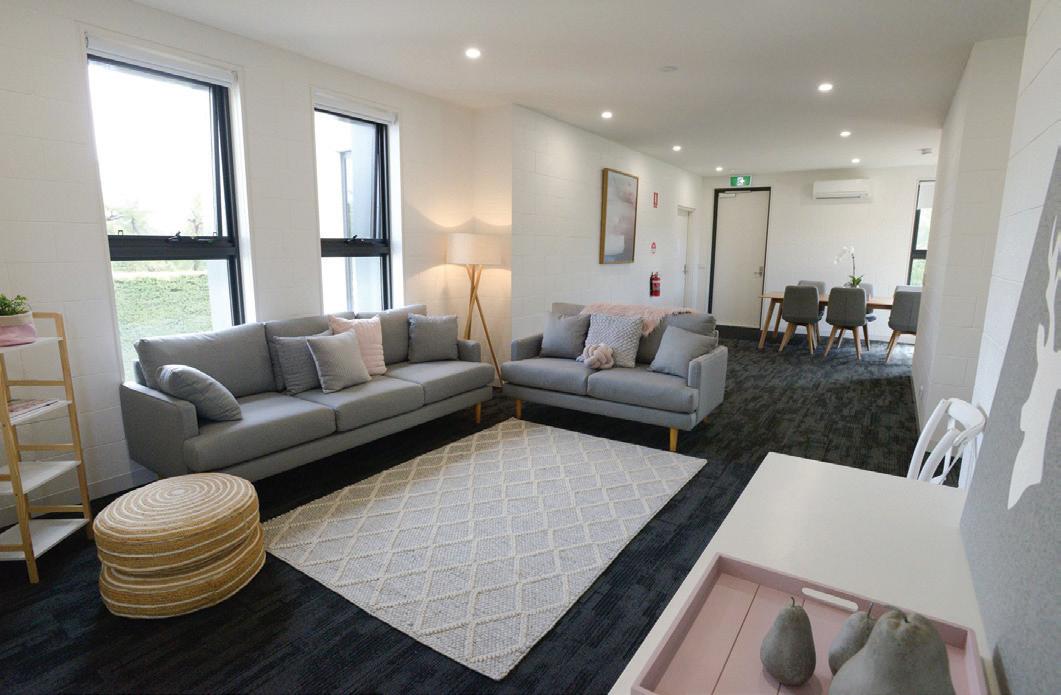
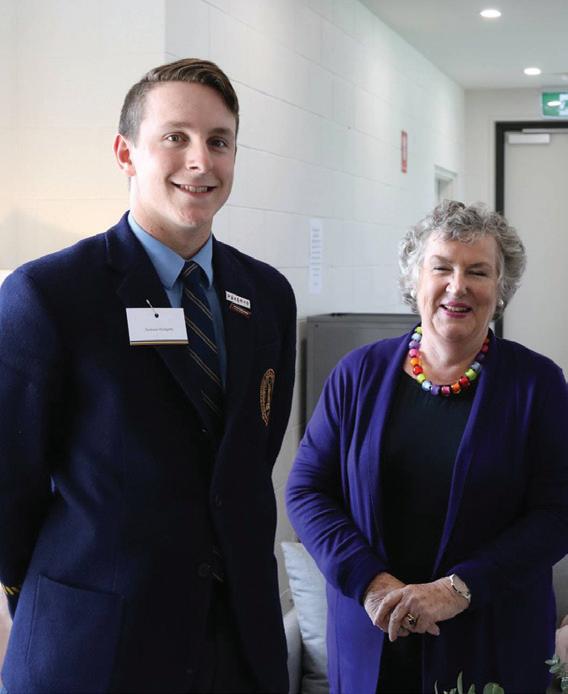
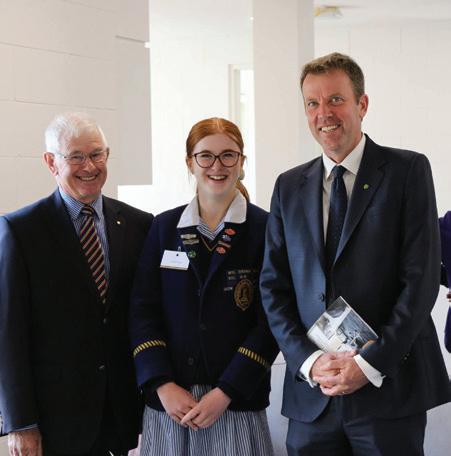

08
2 3 4 1
1. The Hon Dan Tehan MP, Isabella Bradbeer and James Sutherland (2019 School Captains) and Dr Andrew Hirst, Principal 2. Year 12 communal living area 3. Jackson Hodgetts (Year 11) with Cr Mary-Ann Brown, Mayor of Southern Grampians Shire Council 4. John Diprose OAM (Past Board Chairman), Alannah Sander (Year 12) and the Hon Dan Tehan MP
Thank
you to all our incredibly generous donors for helping to bring this exciting boarding vision to life.
Q&A WITH MR ANDREW MONK
OUR

Where did you grow up?
Warrnambool. After finishing school I moved to Melbourne to do a teaching degree.
Where has teaching taken you?
Geelong Grammar (Corio Campus and Timbertop); Knox Grammar in Sydney (teaching and boarding); Scotch College in Adelaide (Positive Education); and Monivae College (Director of Students).
What did you enjoy about working at Timbertop?
The mix of the academic program, boarding and the active outdoor lifestyle was a great combination. Seeing the growth in the students was a privilege – some developed quickly, while others took until Term 4 – but it was always special to see their confidence, resilience and independence blossom. I was also responsible for leading the Positive Education program which has been one of my career highlights. This experience, early in my career, set me up for a dynamic and holistic career in boarding and I am excited to build on this at College.
What do you aim to achieve at the Boarding House in your first year?
It will largely involve observation and connecting with this amazing boarding community. My first step has been to get to know boarders on an individual level. I’m also taking time to connect with families and have launched a Boarding Families Association with a supportive group of passionate parents. This year, I will be focusing

on developing an understanding of what modern-day resilience looks like in our everyday lives, and the boarding team is working together to make sure we have the right tools in place to support our boarders to develop their strengths and resources.
Why do you love working in boarding?
I love seeing students grow and flourish in all aspects of their lives. Along with the highlights, this includes the down times and disappointments. I really enjoy seeing teenagers overcome challenges. Although I’ve only been with College since the begining of this year, I’ve been blown away by the connectedness of our boarding community and the support that boarders and their families show each other. It is one of the great benefits of living regionally –everyone pitches in and makes things happen.
What is your personal interest or passion?
Running. Long distance gives me headspace. I switch off from work and the hectic pace of life which I believe is important for a healthy wellbalanced life. I’ve run three marathons and will be running my fourth on the Gold Coast during the winter holidays.
Favourite food: Chicken parma, chips and salad
Favourite holiday location: South of France
Favourite saying: Oh, jeepers or crikey
Most useless talent: Painting walls – my wife Andrea and I recently completed our third house renovation – that’s a lot of walls!
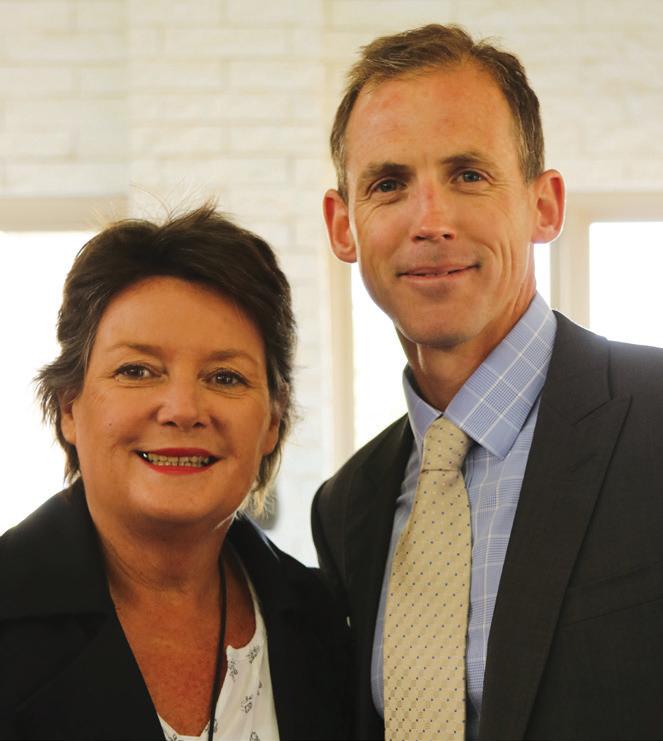
1. Andrew speaks to boarding families at the 2019 Welcome Afternoon Tea 2. Andrew celebrates the opening of the new Year 12 Boarding Wing with Dr Andrew Hirst, Principal 3. Andrew with Mrs Jane Horne, past Director of Boarding, at the official opening
THE IVY & THE TOWER 09
NEW DIRECTOR OF BOARDING
1 2 3
EMBRACING THE REGGIO EMILIA PHILOSOPHY IN THE JUNIOR SCHOOL
Stephen Nelson, Head of Junior School and Frances O’Brien, Director of the Early Learning Centre
The Early Learning Centre (ELC) has been successfully practising the Reggio Emilia philosophy for 15 years. In 2018, Frances O’Brien participated in a study tour in Italy. Returning to College with new and exciting ideas, Frances shared her extensive knowledge with the Junior School teaching staff and, in 2019, the Reggio philosophy was extended into the Junior School from Prep to Year 3.
WHAT IS THE REGGIO EMILIA PHILOSOPHY?
It is an approach to early childhood education that values the child as strong, capable and resilient; rich with wonder and knowledge. It acknowledges the innate curiosity of children and aims to help them understand their world and their place in it.
It was started in Reggio Emilia, Italy after World War II, by parents who believed that a new approach to teaching their young children was needed. It emphasises respect, responsibility and community involvement.
To understand it better, let’s look at its three core principles:
1. The Child - all children have multiple ways of thinking, playing, exploring, speaking and doing. This approach encourages children to use every tool they have to express themselves and their knowledge, understanding, hypotheses and working theories.
2. The Environment - a Reggio-inspired environment, often referred to as ‘the third teacher’, is one that is open and free-flowing. It enables uninterrupted exploration, play and learning.
3. The Teacher - teachers are encouraged to observe children rather than direct them. It is important that children can experiment in their own way, make mistakes and find new solutions. The role of the teacher is to gently move children toward areas of interest.
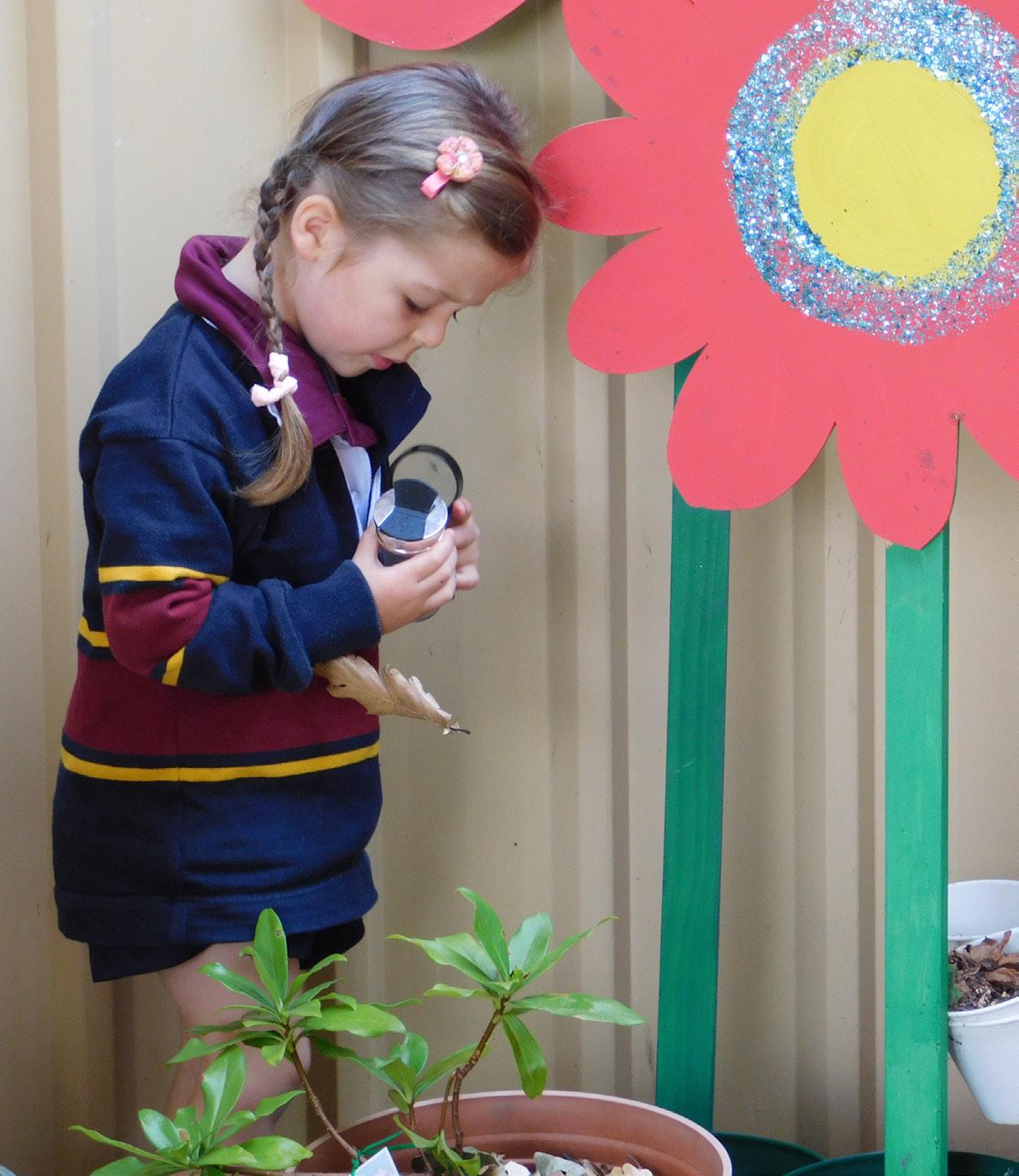
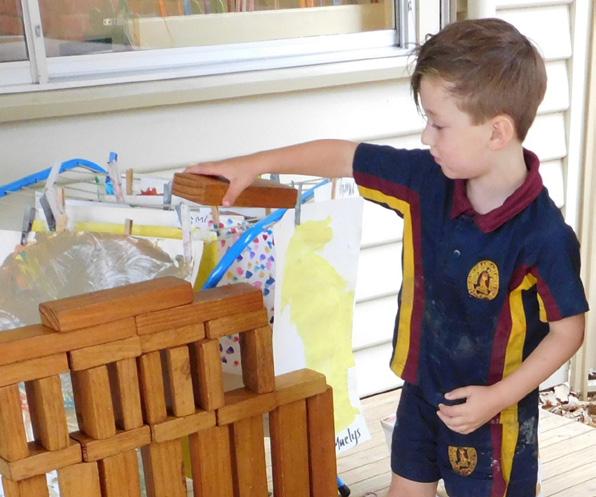
WHAT DOES THIS LOOK LIKE IN THE ELC?
We believe time spent in play is important for learning. Our play-based program supports the development of socially competent learners who are able to face challenges and create solutions.
While the children are playing with blocks, we can pose questions that encourage problem-solving, prediction and hypothesising. We can also bring the child’s awareness towards mathematics, science and literacy concepts, allowing them to engage with these concepts through hands-on learning, using their interest as a vehicle for further learning and understanding.
10
1 2

WHAT DOES THIS LOOK LIKE IN PREP TO YEAR 3?
We are authoring our own lower primary approach to the Reggio learning philosophy, with students engaged in weekly Reggio-inspired ‘Shared Inquiry’ lessons.
In Term 1, our Living Things topic involved touching a snake’s skin, using microscopes, exploring animal foetuses, drawing pictures and using the natural surrounds at Myrniong. Students participated in ‘Wild Action Team’ workshops which provided hands-on experiences to teach them about a variety of animals and their ecological niche, environment, habitat, adaptations and inter-relationships. Students also had an excursion to Mt Sturgeon were they learnt about the animal conservation program and the needs of quolls, gliders and fat-tailed dunnarts. Seeing and engaging brought the Living Things topic to life… literally.
ARE THE CHILDREN JUST PLAYING AROUND?
Children are naturally motivated to play. Our programs build on this motivation, providing a platform for children to explore, experiment, discover and solve problems in imaginative ways. A play-based approach involves childinitiated and teacher-supported learning. We encourage children’s learning and inquiry through interactions that aim to stretch their thinking to higher levels.
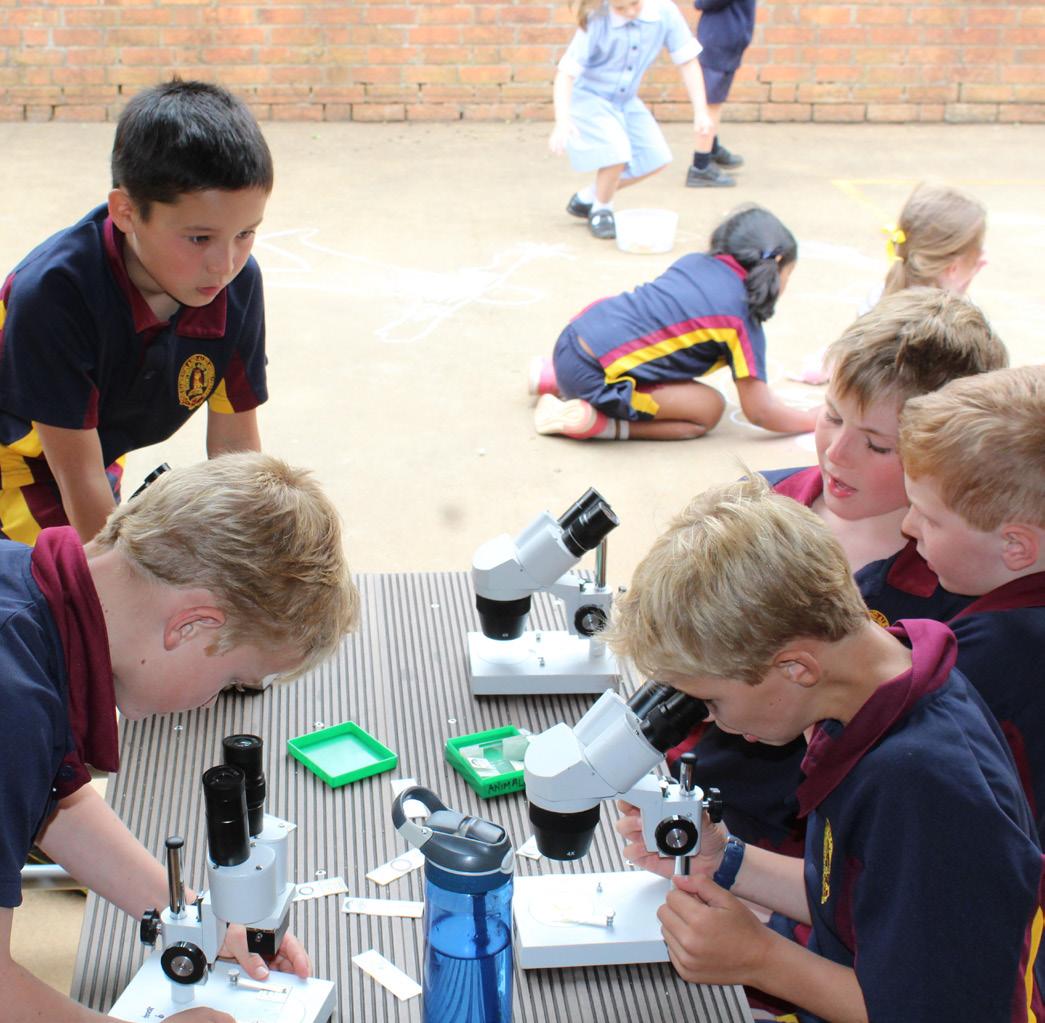
WHAT ARE THE BENEFITS OF THE REGGIO APPROACH?
Research has shown the long-term benefits of high quality play-based programs. Play-based learning allows children to develop skills for learning and for life by engaging in the flexible and higher level thinking processes needed by the 21st Century learner.
Children have greater, more active input into what and how they learn. In turn, they are motivated to gain mastery over their learning which promotes focus, concentration and a more positive approach to the learning. They learn to be strong, capable and resilient. To question and wonder. To develop life skills and knowledge. To ask why and how.
THE IVY & THE TOWER 11
p10 1. Tilly East (ELC Piccino) 2. Charlie Frichot (ELC Piccino) p11 3. Wild Action host, Charlie Hindhaugh (Year 3), Harley Hearns (Year 3), Georgia Kennedy (Year 2), Yolanda O’Sullivan (Year 2), Rhiognach McClure (Year 2), Poppy Shepherd (Year 2) and Bernadine Kelvy (Teacher’s Aide) 4. Year 3
4 3
students: George Nicholls, Lachlan Reid, Lucas Rouse, Freddie Milne and Charlie Hindhaugh
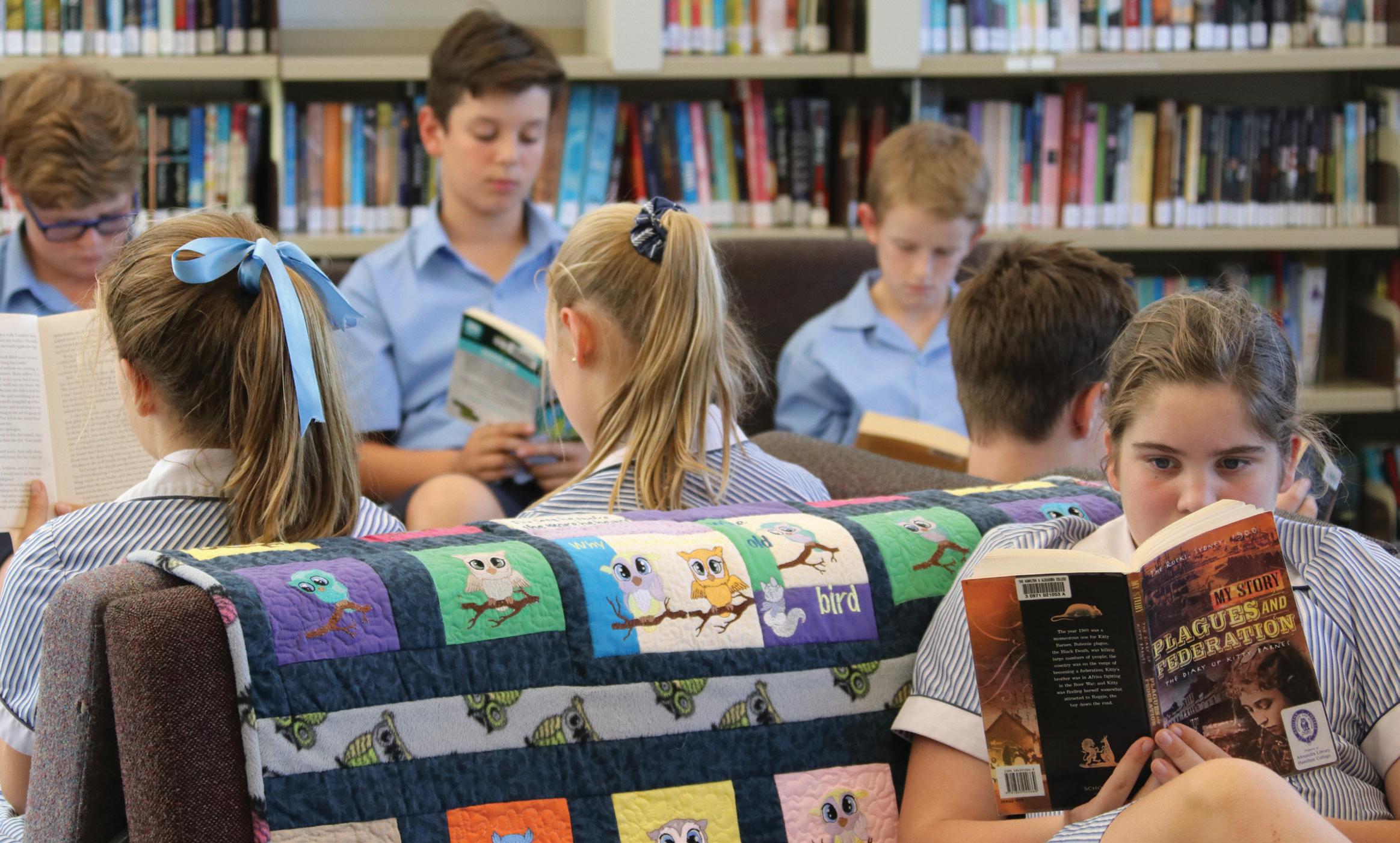
WHY READING MUST BECOME HABIT
Ralph Carolan, Deputy Principal, Teaching and Learning
Think about a book that you have enjoyed reading recently. What was happening inside your head? Perhaps you heard the narrator’s voice or the voices of individual characters. Did you visualise specific locations, scenes or people? Could you smell the smoke from a fireplace or taste the coffee? Perhaps you had an emotional response; you were elated as your favourite character fell in love, were amused by their foibles and shared their devastation in mourning a death.
Reading is both a personal and a social practice. Understanding the internal experience for individuals is crucial in the development of attitudes and motivations that we hold when we think about reading.
What is reading?
It is a question that is fundamental to education, but one that has provoked debate for decades. Indeed, writers often struggle to agree on what questions to pose when exploring the topic. What cognitive operations occur when we are reading? How are reading fluency and comprehension related? What role do spelling and vocabulary play? How do the social and environmental aspects of reading influence the experience of reading?
There is one idea that seems to provide consensus: developing literacy skills is a key component of academic development, and this is the case in almost any subject area.
How do we help students to develop as readers?
In his new book, The Reading Mind: A Cognitive Approach to Understanding How the Mind Reads, Willingham deploys a cognitive psychology approach to the practice of reading. He works his way up from the most basic components of reading to the more complex activities involved in comprehension by exploring the motivations and obstacles that readers face in the digital era.
The good news is, Willingham argues that reading, like most skills, is a virtuous cycle where the more we do it, the better we get and the more we want to read.
Do we teach reading or texts?
In a sense, reading and texts are inseparable. Reading implies a text to read and texts imply the practice of reading.
The focus of teaching reading in previous decades has been on texts, looking at the mechanics of a variety of texts along with the social and ethical implications that are explored in the texts. When students talk about their studies, they often talk about the texts they are exploring, such as a novel, a piece of music, a historical cartoon, a painting, or a recipe for a dessert. Rarely do they talk about the specific capabilities that they are trying to develop through exposure to these texts.
12
1
Recently, the Victorian Curriculum and Assessment Authority (VCAA) made significant changes to the Victorian Curriculum. The VCAA argues that the focus on texts and ‘educational experiences’ implied a process of ‘osmosis’; that exposure to a breadth and depth of texts would help students to develop their capabilities. Indeed, the very structure of the traditional secondary curriculum has implied an emphasis on experiences as opposed to capabilities.
As the ‘osmosis’ approach has been increasingly critiqued and replaced, there has also been an increased understanding that literacy needs to be taught, implicitly or inexplicitly, in every subject and not just in English. In Science, there is a specific literacy inherent in writing a laboratory report; in Mathematics, there is specific vocabulary associated with calculus; and in Accounting, the ability to read and describe the implications of a balance sheet is required.
How students develop the desire to read?
How do we help students gain momentum in their own virtuous cycle of reading? Willingham argues that students need to develop specific attitudes and motivations to reading, combined with conducive environmental circumstances. If students develop the desire to read – the perception that reading is an enjoyable and valuable pursuit among the many competing activities on offer – this will provide the basis for self-motivated reading which is at the core of his recommendations.
When do students develop their reading skills?
Interestingly, Willingham argues that students from all backgrounds can develop their reading skills in the later primary years, since reading in the earlier years is more of a mechanical skill that involves graphical and phonological awareness. In the upper years, the focus changes to become one of comprehension; the ability to draw meaning from the words on a page. This is when vocabulary and working memory become important factors affecting comprehension and understanding of prosody (the patterns of stress and intonation in a language). This is also when students start to develop a perception of themselves as readers and how and when reading can be a leisure activity.
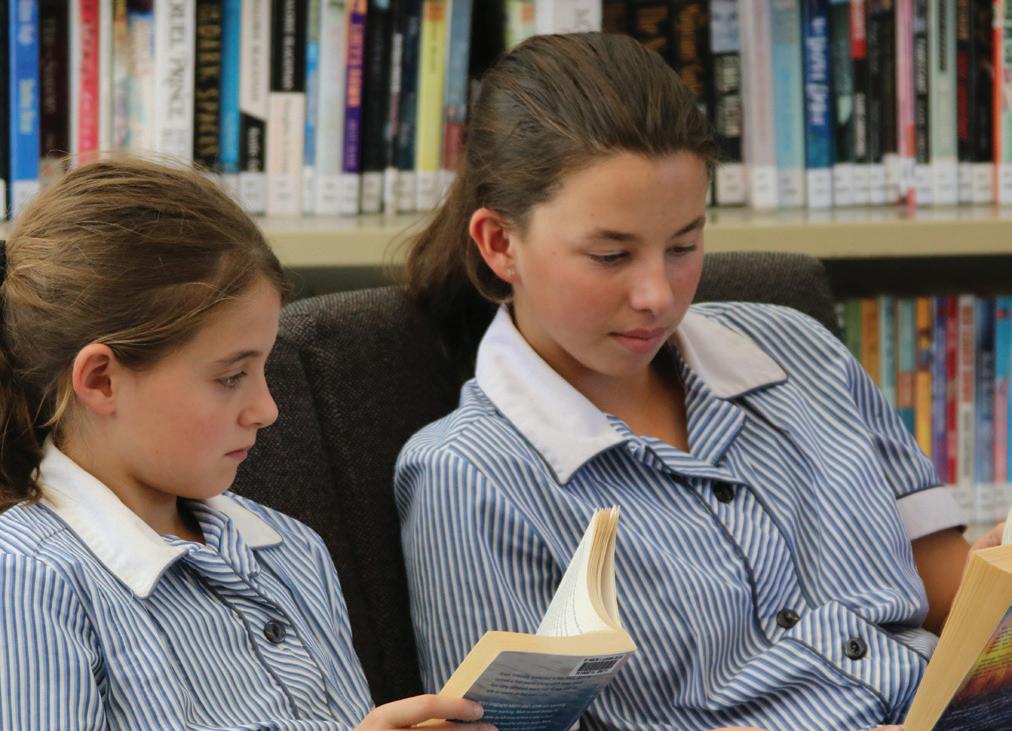
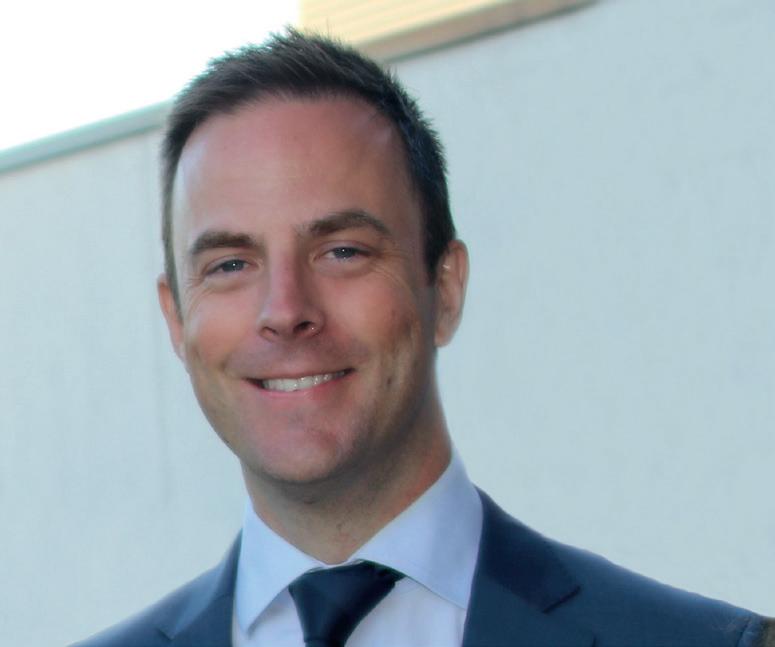

How are we supporting students at College to develop the desire to read?
Our English Department is working with the Victorian Association for the Teaching of English (VATE) Community of Practice on a project designed to explore student reading practices and the implications for teachers. This research will focus on the attitudes and motivations experienced by readers in the Middle Years (Years 7 and 8.)
In Term 2, we have been conducting some guided activities with Middle Years students to map their perceptions of reading. If we can gain a clearer picture of this, we will move towards understanding, ‘What is happening inside your head when you’re reading?’
This will then help us to calibrate our teaching and classroom activities, ensuring that our teaching of reading is embodied (a personal experience of the text, a feeling of being lost in the text), visual (a visual experience of the text, such as picturing a specific scene), dialogical (creating the voice of narrators and characters, conversations with characters and authors, or becoming part of the book), metacognitive (recognising your own responses, recognising what an author is doing, asking questions, or solving a puzzle), and social (communicating with peers, an awareness of other people’s experience of a text).
What are the benefits of reading?
The benefits have been widely researched and validated, with ample evidence illustrating the benefits across all subjects. The continued growth of students is significantly aided by a perception of reading as pleasurable, valuable and worthy of the time and energy of a young adult.
In our actions and in our conversations with the students in our lives, we must emphasise reading as a fundamental daily activity.
THE IVY & THE TOWER 13
- Victorian Curriculum F–10 Revised Curriculum Planning and Reporting Guidelines (2017), Victorian Curriculum and Assessment Authority (VCAA)
- Willingham, Daniel T. (Spring 2015). For the Love of Reading: Engaging Students in a Lifelong Pursuit. American Educator
- Willingham, Daniel T. (2017). The Reading Mind: A Cognitive Approach to Understanding How the Mind Reads. San Francisco, CA: Jossey-Bass
p12
3 2
1. Isobel Mecham (Year 7) p13 2. Ralph Carolan, Deputy Principal, Teaching and Learning 3. Phoebe Alexander (Year 4) 4. Arabella Edgar and Neve McClure (Year 7)
4
LIFE LESSONS
Many of our students from the Class of 2018 are now well into their first year of university study while others have deferred their course and taken a GAP year or chosen a different pathway. Regardless of their choice, their time at College has given them the confidence to try something new and, in many cases, well outside of their comfort zone.
While ‘secure futures’ means different things to different people, most would agree that navigating different cultures, environments and situations are life experiences that help shape futures.
NEW WORLDS AND NEW POSSIBILITIES
Students from the Class of 2018 are embracing new worlds and new possibilities, learning life lessons and setting themselves on the road to a secure future.
Harry Rees is jackarooing on Lake Nash Station, a cattle station on the Barkly Tableland in the Northern Territory. The Station occupies an area of 12,000 square kilometres or three million acres!
“The ‘Ringer life’ has been interesting and a whole lot of fun. Each day is different and exciting – I could be fencing, mustering on horse or motorbike, drafting, branding, riding in the helicopter, or driving a horse truck or road train. One thing I’ll never get used is the distance. At home, you might drive a few minutes between paddocks, but here I can drive two hours just to reach the paddock where we’re fencing for the day.”



Pippa Gan received a scholarship for a 12-month cultural immersion program at Beijing Language and Culture University.
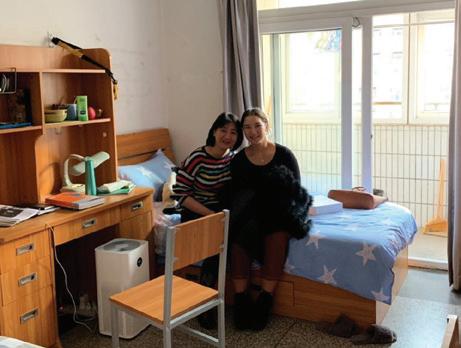
“I’m studying Mandarin. There are people here from all over the world so many different languages. They literally call the university, ‘Little United Nations’.
Claudia Roberts is living in England doing a gap year at co-educational boarding school.
“I’m absolutely loving my time in England and the school. It’s great to be still involved in Boarding and helping the girls in the Boarding House.”
Hannah Nichols is working as a governess in Tibooburra the far north-west of New South Wales.
“So far, this year has been such a positive experience. Governessing and teaching through the Broken Hill School of the Air has been eye opening, and developing a strong connection with the two boys I teach is so special. It is really hard to explain how a different environment, different experiences and seeking people you connect with is such as important step to becoming the best version of yourself you can be.”

Liam Barnes has dived into the Sharp Airlines’ First Officer Cadetship Program. He is experiencing all the hands-on activities of a busy, commercial airline while achieving a qualification.
“My hardest test so far was flying through a rainbow… but I passed with flying colours.”

14
FROM THE ARCHIVES
1959
• The first Glenelg Secondary School Sports Association (GSSSA) Athletics Meet was held at Melville Oval.
• Speech Day was held on the front lawn at the Chaucer Street entrance.
• Principal, Mr Zachariah, retired after six years at College and returned to Melbourne. Miss Winifred Berry also retired after 25 years as Headmistress of Alexandra College, as did her sister, Miss Helen Berry, who was Matron at the College for 20 years.
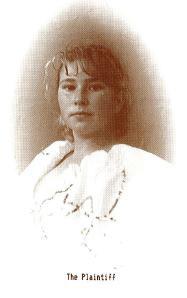

1989

The College performed A Victorian Musical Evening, incorporating Gilbert and Sullivan’s ‘Trial by Jury’, produced by David Garwood and Stephen Curtis. The leading parts were played by Hamish Fleming (The Learned Judge), Sally Hetherington (The Plaintiff), Alex Baylis (The Defendant), Kristina Dishon (Counsel for the Plaintiff), David Thornton (Usher), Dion Love (Foreman of the Jury) and Sarah Marrison (First Bridesmaid). In the program, David Garwood wrote, “Stephen and I were anxious to welcome any member of the school community to take part regardless of their individual ability. What you will see and hear will bear witness to their efforts.” Our connected community and ‘have a go’ attitude is certainly a long-held tradition at College!
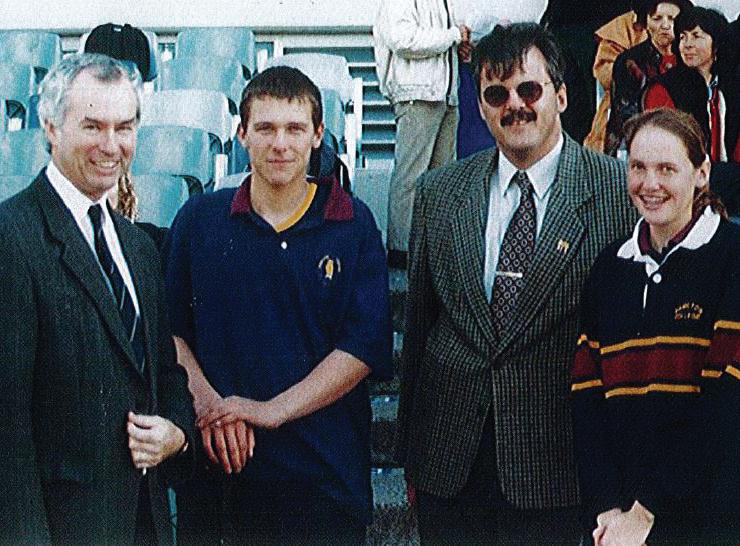
1999
Bruce Simons joined College as Principal and continued in the position until 2015. When Bruce arrived in 1999, harsh economic times had resulted in low enrolments and work was needed to improve the physical landscape. During his time as Principal, $25 million was invested in premium facilities across the school for students and staff. Bruce is remembered for the growth in enrolments, the development of new facilities, curriculum development, the establishment of our international student program, Rowing coaching, and much more.
2009
A number of significant building works were undertaken at Myrniong: a new Junior School Visual Arts Centre was built; the driveway was resurfaced; the Boarding Houses (external) were refurbished; the Refectory was refurbished (including new windows, the removal of the stage and a fresh paint job); and lighting was installed at the all-weather ménage at the Equestrian Centre.


1. With the Year 12 boarding wings officially opened this year, here is a throwback to our 2009 Year 12 boarders with the Director of Boarding, Mrs Jane Horne
2. Building works on the new Junior School Visual Arts Centre
3. Boarding House external refurbishment
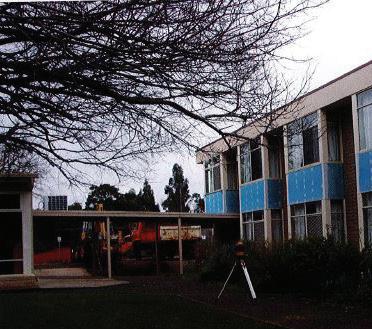
THE IVY & THE TOWER 15
1 1 2 3 2
1. Sally Hetherington as The Plaintiff
2. Hamish Fleming as The Learned Judge
1999 ICCES Athletics Meet: Then Principal-Designate Bruce Simons with Deputy Principal Neil MacLean, Josh Vickery and Sophie Coggins
COMMUNITY NEWS

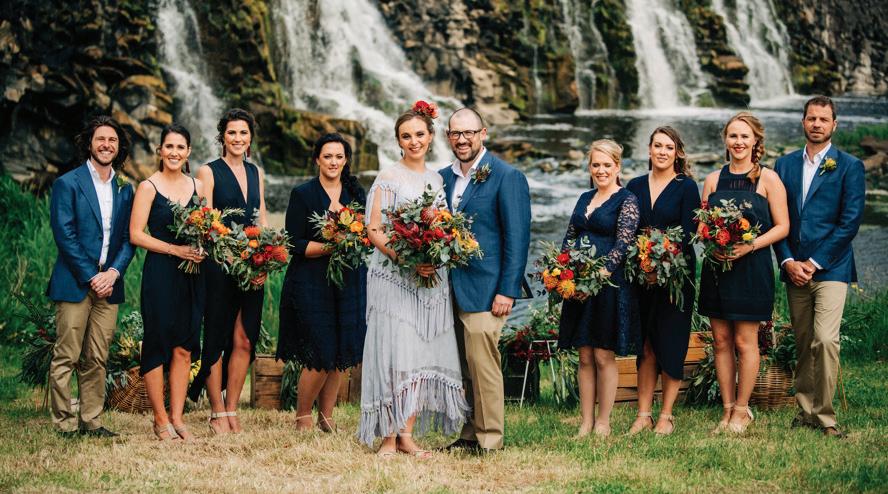
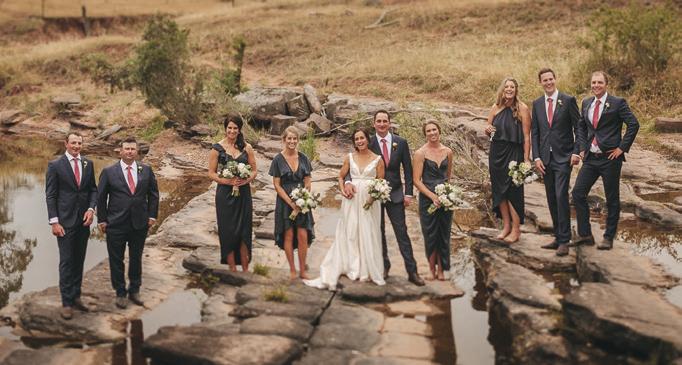
BIRTHS
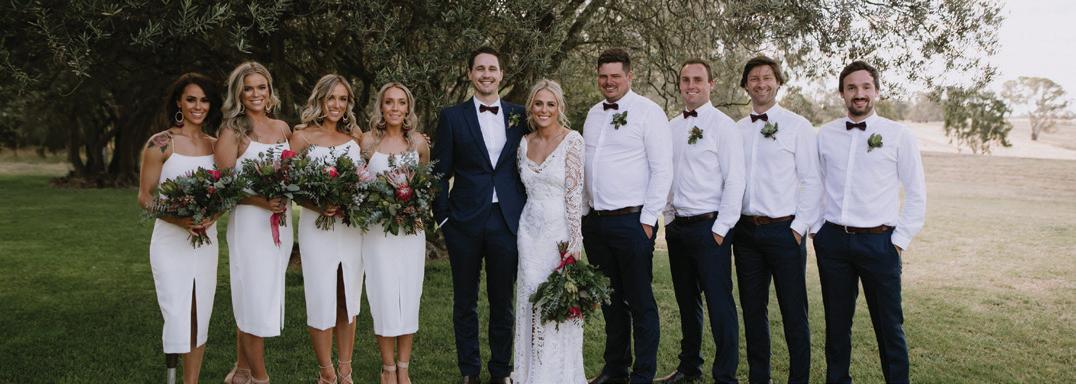


WEDDINGS


LYONS (1997): to TOM and Anna, a son James Robert, on 30 January 2019 - a brother for Fletcher
CAMERON (ADDINSALL 2002): to BEC and Matt, a son Gus John on 24 November 2018 - a brother for Chloe and Annie
DOBSON (O’DONNELL 2003): to LYNDELLE and Derek, a son Tanner James on 11 November 2018 - a brother for Henry
AGAR (2004): to ALEC and Lauren, a son Charles Alexander on 20 November 2018 - a brother for Grace
O’BRIEN (DE KIEVIT 2004): to LOUISA and Tendy, a daughter Jemima on 11 January 2019
BERG (FISHBURN 2008): to JESSICA and Matt, a son Robert (Bobby) Martin on 8 January 2019
BRODY (2008): to TOM and Suzi, a son Tanner Charles on 31 December 2018
ENGAGEMENTS
ALEXANDRA AUGUSTINUS (2008) and ARCHIE WHITING (2007)
JARROD SIMONS (2009) and Bronte French
BEK STOTT (2009) and Matt Bestmann
ALICE WINTER COOKE (2011) and JOEL STAUDE (2010)
SAMUEL WINTER COOKE (2011) and Katie Budenberg (staff)
JAKOB BRADBEER (2015) and Daiana Lucut
DAVID ADDINSALL (2004) and Casey Bray on 22 December 2018
TOM BARBER (2004) and Talina Walker on 2 February 2019
RUBY CAMERON (2005) and Peter Murphy on 3 November 2018
ALICE LAIDLAW (2006) and Daniel Miles on April 2019
LIB HUTTON (2007) and William Carter on 9 March 2019
TOM OSMOND (2007) and Sophie McDonald on 24 November 2018
ALEXANDRA AUGUSTINUS (2008) and ARCHIE WHITING (2007) on 20 April 2019
LACHLAN KELLY (2008) and Sophie Doake on 8 December 2018
ROSIE SHARP (2008) and LACHIE WHITING (2008) on 9 March 2019
BREEANNA HOUSE (2010) and Nicholas Bisset on 9 March 2019
ALICE WINTER COOKE (2011) and JOEL STAUDE (2010) on 13 April 2019
DEATHS
ROGER LEARMONTH (1961) on 23 May 2019
SARAH SIMPSON (LUXTON 1978) on 28 May 2019
ANDREW WALTER (1991) on 27 January 2019
SUSANNAH BELL (2007) on 19 February 2019
TYRRELL EVANS (COMMUNITY) on 25 December 2018
MILAN KANTOR OAM (COMMUNITY) on 6 January 2019
DR DAVID BARING (COMMUNITY) on 28 February 2019
1. Will and Lib Carter (Hutton 2007) with Bec Cameron, John Bailey, Olivia Fleetwood (2007), Mathew Homewood, Catherine Carah (Hutton 2004), Tom Sutton, Annie Waters, James Tyas, Elle Richards (2007) and Nick Marks 2. David Addinsall (2004) and Casey Bray with Old Collegians in the bridal party Tom Barber (2004), Ben Maggs (2004) and Sam Weston (2010) 3. Ruby Cameron (2005) and Peter Murphy with Martin Todorski, Hannah Clark (Coulter 2005), Sarah Dowling (2005), Emma Frost, Frances Taylor, Angela Murphy, Katherine Cameron (2007) and Ben Carrick Photo taken by Alice Laidlaw (2006) 4. Tom (2007) and Sophie Osmond with Nick Robertson and Sarah Rush, Tom Gleeson and Joanna Hocking, Tom Whiting (2007) and Ellie McDonald 5. Lachie (2008) and Rosie Whiting (Sharp 2008) with Camilla Forbes (2008), Josh Free, Cassie Price (2008), Seamus Herrick, Bel Kellaway Will Slattery, Sophie Sharp (2014), Tom Whiting (2007), Olivia Plush (2008), Nick Baulch (2008), Steph Lamont and Hamish MacKinnon (2006) 6. Lach (2008) and Sophie Kelly with Bowes Kelly (2012), Alastair Day, Prue Calvert, Katrina Couttie, Hannah Hopkins, Alice Nixon, Braydn Robertson (2008) and Tom Stephens (2008) 7. Archie Whiting (2007) and Alexandra Augustinus (2008) with Angus Macdonald (2007), Drew Deary (2007), Andrew Bell, Sam Whiting (2005), Anna Burger (2008), Crystal Eddy, Prue Crawford (McIntyre 2008) and Lacey-Rae Giumelli 8. Alice (Winter Cooke 2011) and Joel Staude (2010) with Clare Mackarness (2011), William Plush (2011), Darcy Finnigan (2010) and Zara Kelso (2011)
16
1 2 3 4 5 6 7 8
OBITUARIES
The College was saddened to hear of the passing of three incredible men. They were not only generous supporters of the school but outstanding role models for our community. They will leave a lasting legacy.
TYRRELL EVANS
Tyrrell was heavily involved with College, beginning in 1966 when his son Roddy (1976) commenced in Prep followed by Katie (1977), Richard (1979) and Jane (1982). Today, four of Tyrrell and wife Jan’s grandchildren attend the College, Millie, Toby, Rosie and Jock.
During the 1970s and 1980s, Tyrrell was a great supporter of the College, embracing a number of active roles including Chairing the Key Gifts Building Appeal, P&F Representative on the School Council, Chairman of the Building Committee and member of the Executive Committee.
During the late 1970s the College was going through difficult times and in September 1977, the College Board met with the Lutheran Congregation to discuss an amalgamation. Tyrrell and Mark Brian both rejected the idea and were instrumental in ensuring our independence. Thankfully help came from the Presbyterian Church to ensure College could continue functioning.
As Chairman of the Building Committee, Tyrrell moved the motion to relocate the Junior School into the Myrniong Homestead. He oversaw Berry Hall’s transportation from Alexandra House to the new site in Chaucer Street, even riding on the roof to keep the electric wires aloft with a pitchfork!
The family sponsors two awards at the College Speech Day – a prize in memory of Richard and the TG Evans Prize for Sportsmanship.
MILAN KANTOR, DR JUR (PRAGUE), LLB (MELBOURNE), OAM
Milan was a brilliant mind, an avid lover of music and a trained concert pianist. His generosity was instrumental in the development of our first-class facilities and his family was a major benefactor of The Kantor Family Music and Performing Arts Centre (MPAC).
Milan adored his four grandchildren who all attended College, Hannah (2010), Nina (2012), Grace (2013) and Charlie (2016). Milan’s daughter, Eve Kantor and her husband Mark Wootton have also contributed to the history of the School.
Eve shared, “Dad was very proud of The Kantor Family MPAC. Whenever he came to stay, a slow drive-by was compulsory. Even better were the times when he ventured inside and heard students performing or practising. This genuinely moved him to tears.”
DR DAVID BARING
David and wife Maxine’s experience at College commenced in 2005. Their three sons, Jack (2012), Harrison (2014) and Thomas (2017) are all Old Collegians.
David was a passionate and talented coach of Junior and Senior College Basketball teams and the Hamilton Hurricanes. He always expected the best from his players and went the extra mile to ensure they were thoroughly prepared, with extra sessions and one-on-one coaching all part of the Baring commitment. David’s passion for College Basketball was unmatched and, fittingly, he won a premiership in his last season in 2018 with the Division 2B Boys’ Team. David will be greatly missed by the boys and the wider Hamilton basketball community.
COLLEGE COMMUNITY OUT AND ABOUT
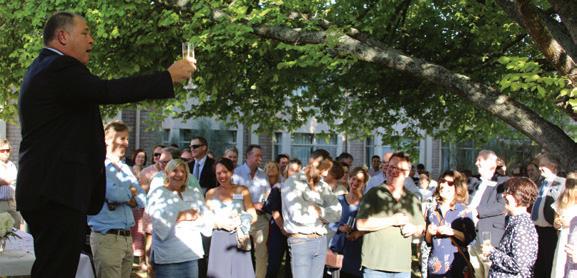
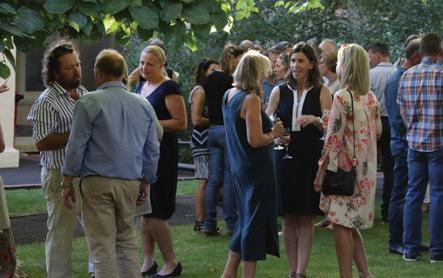

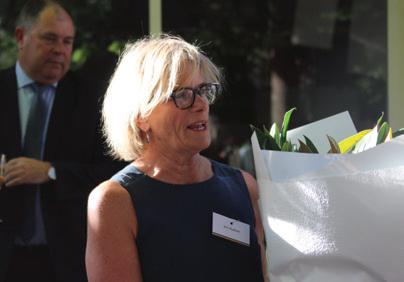
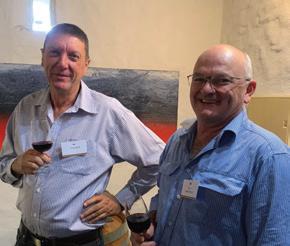
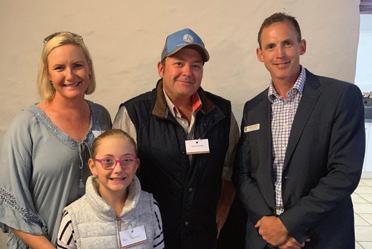



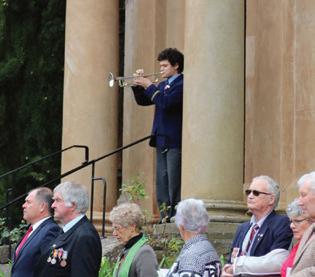
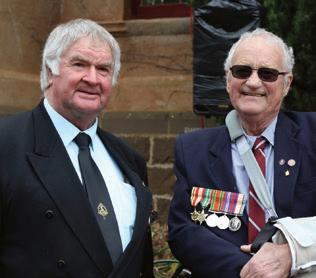

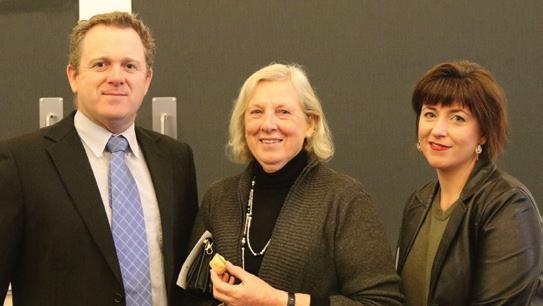

THE IVY & THE TOWER 17
SOUTH-EAST PARENTS DRINKS AT KATNOOK WINERY 14 March 2019 5 8 6 7 9 WELCOME DRINKS FOR PARENTS 1 February 2019 ANZAC SERVICE 25 April 2019 4 3 13 14 10 12 11 2 1
COLLEGE COMMUNITY OUT AND ABOUT

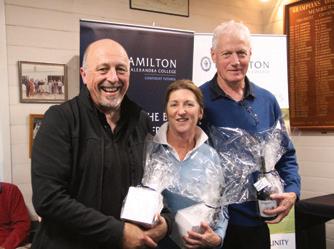

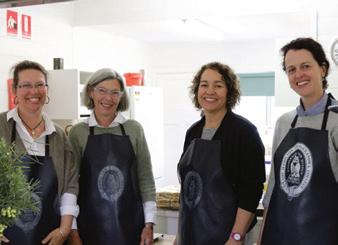
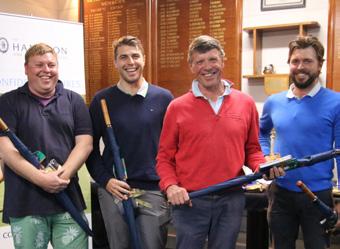




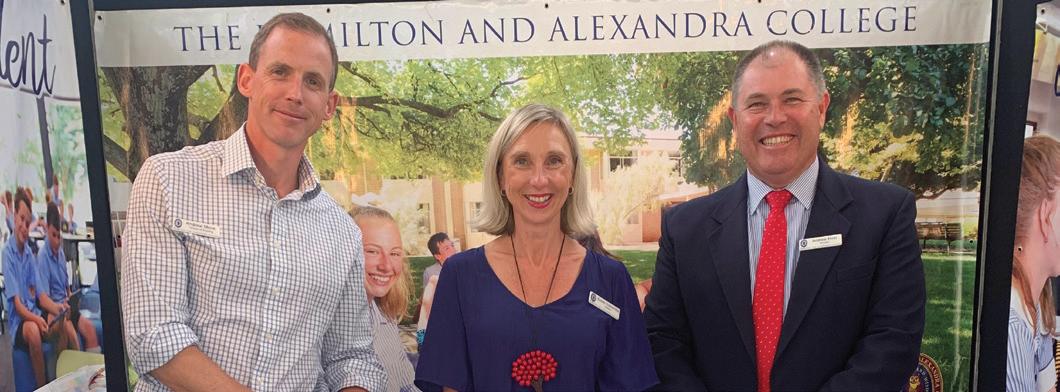
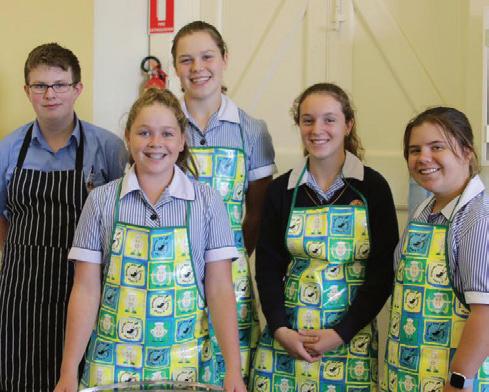


the Principal, Dr Andrew Hirst 9. Margaret Stark and Melissa Hunter
representing the Staff Association and Jane Woodburn representing the
Collegians
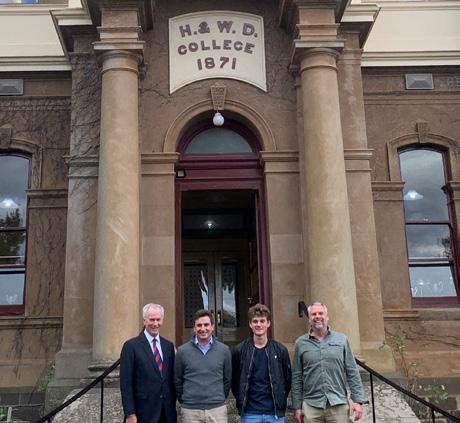

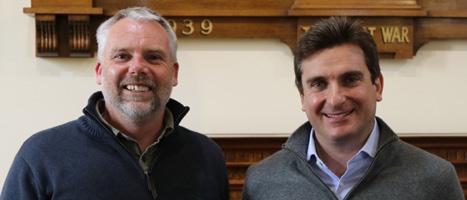
Liam
Jane and Vicki Hazelwood 14. Kerryn and Barry Little 15. John Adams (CP), Gerard Cashill (CP), Knox Paton (OC, CP) and Nick Dopheide (CP) 16. James Muir (PP), Andrew Bowman (CP) and Julie Sealey 17. Ron Wiber (PP), Sue McKellar (OC), Margot McKellar (OC) and Careena Macdonald (OC, PP) 18. Anna Delany (OC, CP), Rosie Mercer (PT), Sarah Baker (CP) and Rosie Merrin (OC, CP) 19. George (OC), Tom (OC), Peter (PP) and Will Osmond (OC) 20. Ready to tee off 21. The winning team: Andrew Howells (CP), Brad MacLean, Lachie Patterson and Hamish Bailey (OC) 22. Di Austin (CP) and Jody Russell (CP) 23. John Adams (CP), Gerard Cashill (CP), Knox Paton (OC, CP) and Nick Dopheide (CP) 24. The Director of Boarding, Andrew Monk, the Registrar, Susie Holcombe, and the Principal, Dr Andrew Hirst 25. Young House students: John Charnley, Annabel Hetherington, Jedah Huf, Sophie Cunningham and Georgina English 26. Helpers: Rosie Mercer, Sarah Millear, Susie McKinnon, Robyn Linke and Lesley Dennis 26. Neil MacLean with Helen Hadden (former Sports Mistress), Elizabeth Cummins (former Senior Mistress), Judith Gibson (former Head of Art) and Gail Morton (Wyeth) 27. Neil MacLean (Associate Principal, Operations), Bruce Martin (former GAPper), Fred Martin (current GAPper) and Michael Nelson (former teacher). 28. Bruce and Fred Martin 29. Michael Nelson and Bruce Martin *OC (Old Collegian), PT (Past Teacher), PP (Past Parent), CP (Current Parent)
A FOND FAREWELL TO JEN HUTTON
After 19 years at College – and 38 editions as Editor of The Ivy and the Tower magazine – Jen retired at the end of 2018. On behalf of the whole College community we thank Jen for her incredible foresight, philanthropic work, insights and connections that have brought College great success and memorable moments. Jen’s warmth, energy, efficiency and amazing memory for names and dates will be greatly missed. We wish you all the best, Jen!
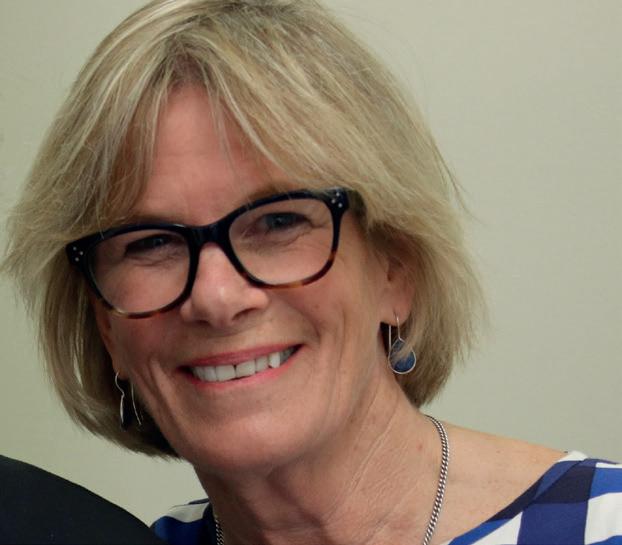
18
CONTINUED SOUTH-EAST FIELD DAYS AT LUCINDALE 15 and 16 March 2019 SHROVE TUESDAY PANCAKES 5 March 2019 IMPROMPTU ‘STAFF REUNION’ Term 1 break GAPPER’S RETURN TO COLLEGE FOR A VISIT May 2019 24 25 28 27 26 29 30
GOLF DAY 5
2019 20 15 16 17 18 19 21 22 23
1. Dr Andrew Hirst toasts the new school year 2 & 3. Guests 4. Jen Hutton thanks the College community 5. Greg Koch and Scott Hetherington 6. Helen, Abi and Daniel Treloar with the Director of Boarding, Andrew Monk 7. Jill and Tony Bedworth and Lorraine Verco 8. Elke Hocking, Cate Cleggett, Craig Cleggett, Helen Heaver, Steve Balog, Danielle England and Jane Hetherington with
10.
Jeffery (Year 10) plays The Reveille 11. Peter Guthrie and Bobby Fraser 12. Tim Cameron
Old
Association 13. Richard,
COLLEGE COMMUNITY
May
ANNUAL REPORT HIGHLIGHTS
21% OF VCE STUDENTS SCORED ABOVE 90 ATAR BACK-TO-BACK GLENELG DIVISION ATHLETICSCHAMPIONS
$84,475 RAISED THROUGH ANNUAL GIVING
PERFORMANCE COLLABORATIONS WITH THE MELBOURNE SYMPHONY ORCHESTRA
FROM THE CHAIRMAN OF THE BOARD
Alasdair Sutherland
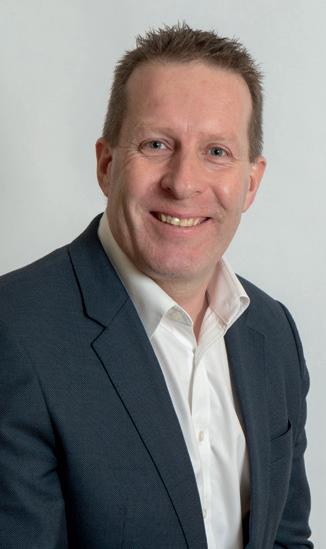
This is an abridged version of the Chairman’s message published in the Annual Report –to read the full Annual Report go to www.hamiltoncollege.vic.edu.au
At College, our teachers seek to educate students for life and to nurture strength of character. One of the great benefits of our school size is that each student is known on a first name basis as well as for their individual passions and interests.
A parent comment in the Years 7-12 survey said, “…the School has provided our kids with overall education, leadership and life skills that will carry them forward for the rest of their lives – thank you, we will always be grateful!” This is a wonderful reflection of the teaching staff and programs offered at College.
The Board has been working hard on producing and ratifying a formal Constitution for the College, and negotiating the details of transferring the Property Trust from the Uniting Church to direct College control. These important projects are looking to the longterm security of the College and its buildings and grounds. Stage 2 of the Boarding House redevelopment is now complete, with students moving into the new Year 12 wings at the start of the 2019 school year. We sincerely thank the Australian Government’s Capital Grants Program for their support with a $760,000 grant, as well as the College Foundation and Friends of the College for their generous donations to this project and to the Scholarship Fund.
I extend the thanks of the Board to Mr John Diprose OAM, Mr Roger Brown and the Rev David Thompson who resigned from the Board during the year. We were delighted to welcome Mrs Penny Adamson as a new Board member in September 2018. Penny brings both marketing and business management experience. Finally, I would like to thank my fellow Board and Foundation members for the time, energy and expertise that they give so generously. This supportive community culture is what makes College such an appealing school for teachers, students and families alike.
REUNIONS 2019
10 YEAR REUNIONCLASS OF 2009
Saturday 20 July
Contact Catherine MacLean E catherinemaclean24 @gmail.com
20 YEAR REUNIONCLASS OF 1999
Saturday 24 August
Contact Jane King (Mercer) E jane@bowmont.com.au
30 YEAR REUNIONCLASS OF 1989 Saturday 19 October
Contact Hugh Koch E HKoch@sthgrampians .vic.gov.au
FIND US ON FACEBOOK
‘Like’ our Old Collegians Facebook page @TheHamiltonandAlexandraCollege
WE’RE TURNING 150... IN 2022
Planning for our Sesquicentenary in 2022 has already started. How exciting! We are working hard to build our archival collection leading up to the celebrations.
Do you have any photos or memorabilia to donate? If so we’d love to hear from you.
Please contact Alana Brown on abrown@hamiltoncollege.vic.edu.au or 03 5572 1355
MAKE A DATE WITH YOUR CLASSMATES
THE IVY & THE TOWER 19
www.hamiltoncollege.vic.edu.au The Hamilton and Alexandra College Chaucer Street Hamilton Vic 3300 PO Box 286 Hamilton Vic 3300 T +61 3 5572 1355 E admin@hamiltoncollege.vic.edu.au













































































